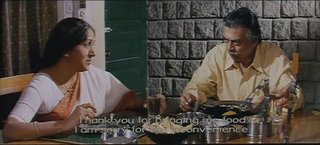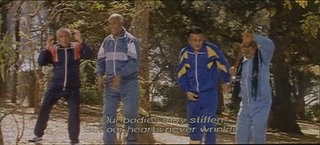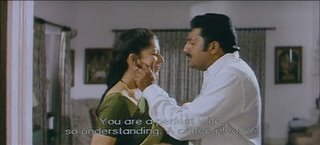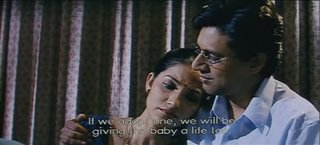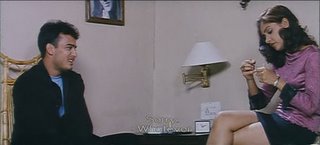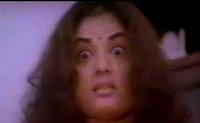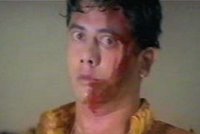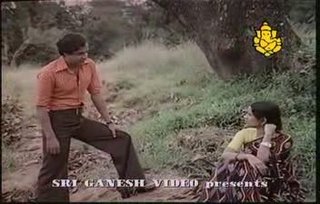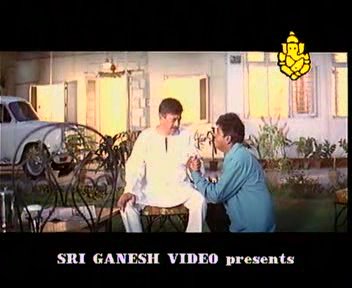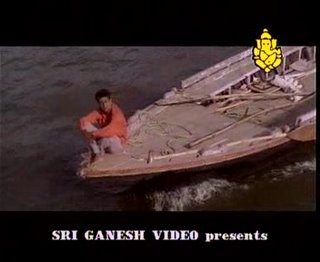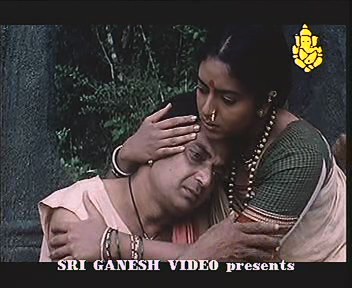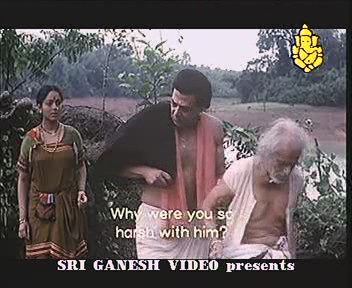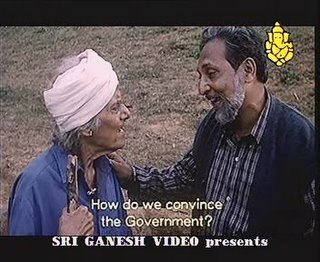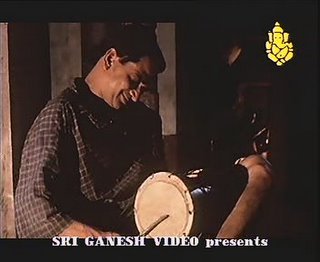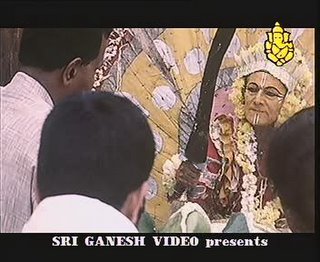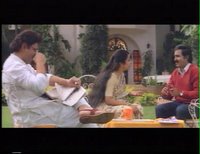 Amritavarshini (1998)
Amritavarshini (1998)Featuring: Suhasini, Ramesh, Sarat Babu, Ramakrishna, Tara and others.
Directed by: Dinesh Babu
“Thou shalt not covet thy neighbor’s wife” is one of the 10 commandments in the Holy Bible. “Amritavarshini” personifies this in more than one way. I have always been a big fan of movies made for the mature audiences. It is a mistake most commonly made by directors in the Kannada movie industry (and others as well) where they do not give enough credit to the intelligence and maturity of their viewers. This assumption ends up in a potentially good script stretched at the edges to fit the atomic viewpoint directors seem to have sometimes. With ‘Amritavarshini’, Dinesh Babu does not fall into that landmine which is why this movie is now officially one of my favorites.
Veena (Suhasini) is a housewife married to Hemanth (Sarat Babu) who runs his own business and is the breadwinner of the family. A cheerful and talkative woman by nature, Veena and Hemanth are a match made up above. Whoever said love starts to decline after marriage ought to take a look at this couple. Even after 9 years of togetherness (2 years of courtship included) Hemanth and Veena are soul mates. It is one of those enviable relationships everyone wishes they had. This envy, though most of the times just a passing thought, sometimes threatens to grow out of control. An envy so mighty that it matures and starts reproducing itself until it has completely consumed the individual.
Such an individual enters this haven of love one day. Abhishek B
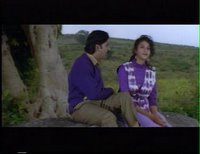 haradwaj (Ramesh) is an old time friend of Hemanth. He has the eyes of a dreamer and a heart of a poet. Little wonder then that he speaks only in, as Veena puts it eloquently, “Hmm…Aah…Oh”s. A shy man who is initially hesitant and overwhelmed with Veena’s outrageous display of confidence and uninhibited love for her husband, Abhishek soon starts drawing obvious comparisons between Veena and Shruti (the late Nivedita Jain) whom he had loved more than his life. After Abhishek loses Shruti to blood cancer, a part of him dies along with her. He is no longer the man he used to be and becomes holed up in his own world of frustrations. These demons within Abhishek start coloring him green every day. A color that soon starts becoming darker and deeper. A color that blinds him to the feeling of friendship and goodwill he shares with Hemanth. A color that clouds him completely as he finds himself attracted towards Veena.
haradwaj (Ramesh) is an old time friend of Hemanth. He has the eyes of a dreamer and a heart of a poet. Little wonder then that he speaks only in, as Veena puts it eloquently, “Hmm…Aah…Oh”s. A shy man who is initially hesitant and overwhelmed with Veena’s outrageous display of confidence and uninhibited love for her husband, Abhishek soon starts drawing obvious comparisons between Veena and Shruti (the late Nivedita Jain) whom he had loved more than his life. After Abhishek loses Shruti to blood cancer, a part of him dies along with her. He is no longer the man he used to be and becomes holed up in his own world of frustrations. These demons within Abhishek start coloring him green every day. A color that soon starts becoming darker and deeper. A color that blinds him to the feeling of friendship and goodwill he shares with Hemanth. A color that clouds him completely as he finds himself attracted towards Veena.On a pleasure trip to Kodaikanal, Hemanth realizes the hidden feelings Abhishek has been nursing for his wife. Being the reasonable man he is, he talks to Abhishek about it in what is quite possibly one of the best shot sequences of the movie. How do you ask a close friend if he has developed the wrong kind of feelings for your wife? The metaphor Hemanth uses from the Mahabharata is a master stroke. It not only hits Abhishek but even the viewer when such a grave issue is simplified with sound reason by Hemanth. Overcome by a fit of rage and unable to control the dance of evil within him, Abhishek chooses to do the unthinkable.
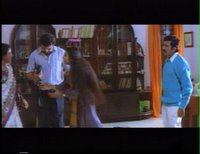
Abhishek returns home alone that night to realize Veena is going to be a mother. On hearing the terrible news, Veena faints losing the unborn in the process. As Veena spends her living moments looking into the void with a question mark on her face, Abhishek is busy signing police statements about Hemanth’s accident.
Hemanth is an ardent photographer. He captures life and considers the camera his best friend. A friend, who as it turns out, helps Hemanth out even in the direst of situations. A friend who brings to light the reality behind the ugliness that Abhishek tries to hide. A friend, who ends up playing a vital role in this gripping tale of friendship, trust and timeless love.
Dinesh Babu handles such a delicate subject matter with the hand of a true genius. I do not think all established directors have the skill to do the same. This kind of genre has not been explored much in the Kannada cinema history, so it was an absolutely refreshing delight.
One superlative performance succeeds the other. Suhasini is in complete form with her controlled performance as Veena. Her character goes through so many shades between the first and the last frames. She handles her role with aplomb and showcases the true professional that she is. Her talent has always been about the things she never says and Veena could not have found a better performer. Ramesh reached pinnacles of success with this performance and there are no surprises there. He plays his role of a subdued, injured and eventually frustrated Abhishek who is desperately looking for something to help him move on from the tragedy in his love life. Unfortunately bad reasoning paves way to tragic consequences. Do not miss the climax where he does not utter a single word and yet the whole message is conveyed. Another master stroke indeed. This was a very difficult role to essay and Ramesh does complete justice to it. Sarat Babu, sans his highly Telugu-accented Kannada, is another wonderful performer in this unique intersection. His quiet handling of some of the easily “could have been loud and cliché” scenes is just plain brilliant. Others chip in appropriately in the forms of Ramakrishna and Tara, although I felt being one of the prominent members, they could have lent more meat into the goings on. I also wonder why Ramakrishna did not persue the information he got from the driver further. All the focus is always on Veena and hence it sometimes leaves incomplete traces here and there.
Technically the movie is brilliant as well. The shots of scenic Kodaikanal are a treat to watch. The songs are absolute chartbusters. Music is always an essential ingredient of a good movie and Deva does a wonderful job with the same. Editing could have been tighter in some of the sequences but nothing that one would mind. The no-nonsense treatment of the subject makes it a treat to watch. If you are tired of the unending stream of stereotypical movies then I would highly recommend “Amritavarshini” to you.
Such movies in Kannada make a rare appearance and hence deserve complete audience as well as honest applause.

